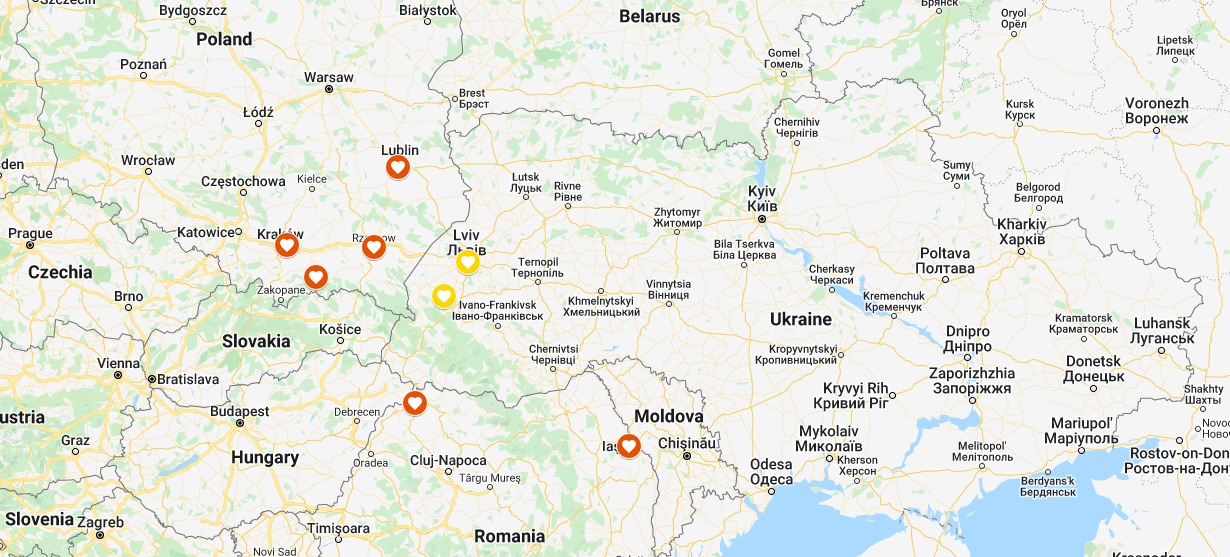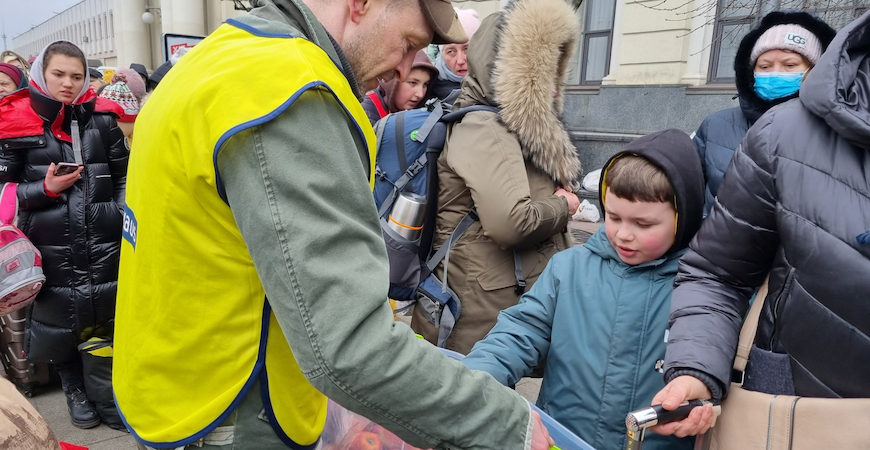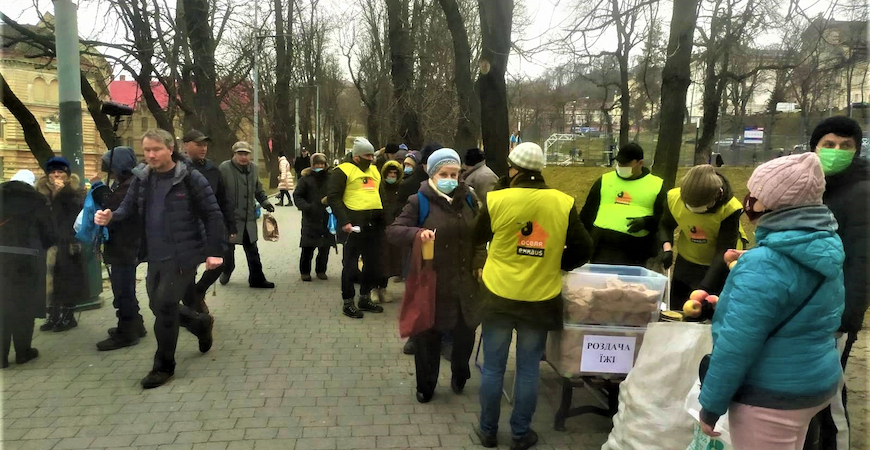Solidarity with Ukraine
Many of you are supporting our friends from Ukraine and the neighbouring countries, and enabling them to help others. A big thank you to everyone for rallying round in the Emmaus way.
We are receiving a lot of questions about the best way to help. If you want to help, you can find here the main needs of the groups on the ground, and how to best meet them. You will also find answers to frequently asked questions and the information sent to all the European groups.
- December 2022, Update on needs Ukraine and Eastern Europe
- 19 May 2022, Newsletter, groups’ news
- 15 April 2022, Newsletter, groups’ news
- 23 March 2022, Newsletter, groups’ news
- 16 March 2022, Ukraine update, groups’ news
- 9 March 2022, How can we really help the Ukrainians?, needs and organisation, frequently asked questions
- 4 March 2002, Ukraine update, EU institution advocacy and groups’ news
- 3 March 2022, Emmaus International and Emmaus Europe joint statement on the situation in Ukraine
- 2 March 2022, Letter to the EU institutions
- 2 March 2022, Ukraine update, groups’ news
- 25 February 2022, message from the chair of Emmaus Europe and groups’ news
- 24 February 2022, Emmaus Europe Board’s Statement
We also regularly share news from the groups on our Instagram account @emmauseurope and on the internal Facebook groups of Emmaus International (Act Emmaus) and Emmaus France (Emmaüs en Mouvement).
If you do not receive our emails, please sign up on the homepage of the member area. As all European groups are registered, please check your spam or any folders that filter your incoming emails or mark these emails as priority messages.
Information for clients and donors
Here are some posters to raise the awareness of the general public about the groups and work of Emmaus in Ukraine and on the Polish and Romanian borders. Equally, you could use the posters to inform customers wanting more information about how we use the funds. We have also included the Emmaus Europe logo if you need it for your communications.
Download the posters
Ukraine solidarity contact person
Emmanuel, solidarity coordinator: emmanuel.rabourdin@emmaus-europe.org
Bank account details (“Ukraine Fund” as the reference + groups’s name)








